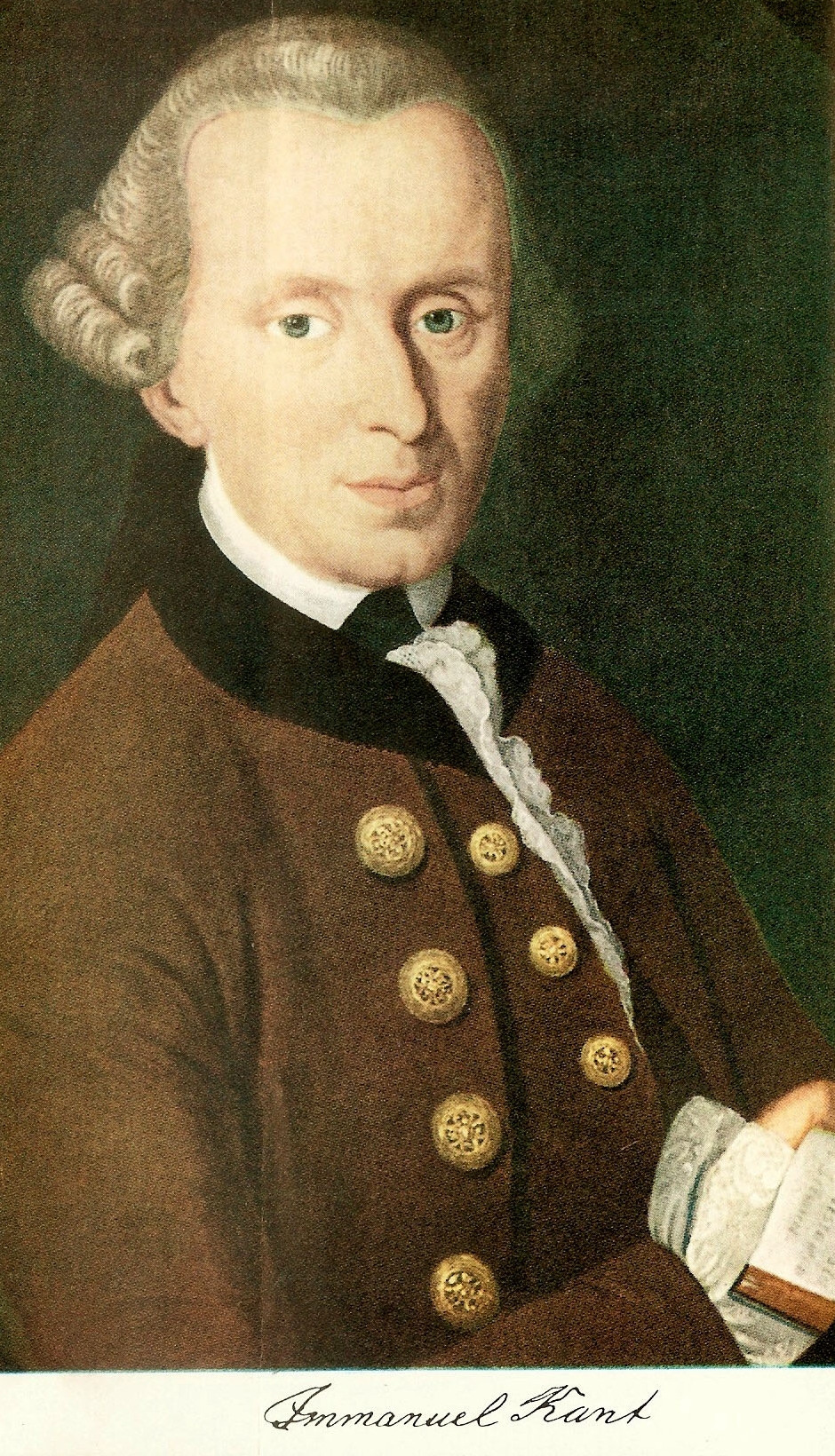Immanuel Kant słynne cytaty
„Moralną koniecznością jest zakładać istnienie Boga.”
Źródło: Jostein Gaarder, Świat Zofii. Cudowna podróż w głąb historii filozofii, tłum. Iwona Zimnicka, Warszawa 1995, s. 356.
„Zaletą literatury jest to, że pozwala ludziom postawić się na miejscu innych.”
Źródło: Adam Żółtowski, Filozofia Kanta, 1923.
„Zawsze masz traktować człowieka jako cel sam w sobie, a nie tylko środek do celu.”
imperatyw kategoryczny.
Źródło: Jostein Gaarder, Świat Zofii. Cudowna podróż w głąb historii filozofii, tłum. Iwona Zimnicka, Warszawa 1995, s. 359.
Immanuel Kant cytaty
Zwei Dinge erfüllen das Gemüt mit immer neuer und zunehmender Bewunderung und Ehrfurcht, je öfter und anhaltender sich das Nachdenken damit beschäftigt: Der bestirnte Himmel über mir, und das moralische Gesetz in mir. (niem.)
Inna wersja: Są dwie rzeczy, które napełniają duszę podziwem i czcią, niebo gwiaździste nade mną, prawo moralne we mnie. Są to dla mnie dowody, że jest Bóg nade mną i Bóg we mnie.
Źródło: O dwóch rzeczach, które napełniają duszę podziwem
Inne tłumaczenie: Istnieje tylko jeden imperatyw kategoryczny: postępuj tylko wedle takiej maksymy, co do której możesz zarazem chcieć, żeby stała się powszechnym prawem.
imperatyw kategoryczny.
Źródło: Jostein Gaarder, Świat Zofii. Cudowna podróż w głąb historii filozofii, tłum. Iwona Zimnicka, Warszawa 1995, s. 359.
Źródło: Spór fakultetów, tłum. Mirosław Żelazny, Wydawnictwo Rolewski, Toruń 2003, s. 136–137.
Źródło: Z. Kuderowicz, Kant, s. 53.
Der Himmel hat den Menschen als Gegengewicht gegen die vielen Mühseligkeiten (des Lebens) drei Dinge gegeben: Die Hoffnung, den Schlaf und das Lachen. (niem.)
„Matematyka jest warunkiem wszelkiego dokładnego poznania.”
Mathematik ist eine Bedingung aller exakten Erkenntnis. (niem.)
„W każdej nauce jest tyle prawdy, ile jest w niej matematyki.”
Źródło: Leksykon złotych myśli, wybór Krzysztof Nowak, Warszawa 1998.
Źródło: Allgemeine Naturgeschichte und Theorie des Himmels
Źródło: Antropologia w ujęciu pragmatycznym, Warszawa 2005
Źródło: Uzasadnienie metafizyki moralności
Źródło: O wiecznym pokoju, tłum. Feliks Przybylak, Wrocław 1995.
Źródło: Richard H. Popkin, Avrum Stroll, Filozofia, tłum. Jan Karłowski, Norbert Leśniewski, Andrzej Przyłębski, Poznań 1994, s. 67.
Źródło: Adam Hlebowicz, Kaliningrad bez wizy, Oskar, Gdańsk 2012, ISBN 978-83-63709-17-4, s. 86.
Immanuel Kant: Cytaty po angielsku
“The deceiver is really the fool.”
Kant, Immanuel (1996), page 101
Anthropology from a Pragmatic Point of View (1798)
Kant, Immanuel (1996), page 100
Anthropology from a Pragmatic Point of View (1798)
Kant, Immanuel (1996), page 99
Anthropology from a Pragmatic Point of View (1798)
Kant, Immanuel (1996), page 95
Anthropology from a Pragmatic Point of View (1798)
Kant, Immanuel (1996), pages 94-95
Anthropology from a Pragmatic Point of View (1798)
Kant, Immanuel (1996), page 54.
Anthropology from a Pragmatic Point of View (1798)
.
Kant, Immanuel (1996), page 37
Anthropology from a Pragmatic Point of View (1798)
Kant, Immanuel (1996), pages 34-35
Anthropology from a Pragmatic Point of View (1798)
Kant, Immanuel (1996). Anthropology from a Pragmatic Point of View https://books.google.com/books?id=TbkVBMKz418C. Translated by Victor Lyle Dowdell. Southern Illinois University Press. ISBN 9780809320608. Page 33.
Anthropology from a Pragmatic Point of View (1798)
“The woman wants to dominate, the man wants to be dominated”
.
Kant, Immanuel (1996), page 220
Anthropology from a Pragmatic Point of View (1798)
Kant, Immanuel (1996), page 185
Anthropology from a Pragmatic Point of View (1798)
Kant, Immanuel (1996), pages 141
Anthropology from a Pragmatic Point of View (1798)
since it is at odds with itself, and since it does not tolerate any lasting principle within itself
Kant, Immanuel (1996), page 246
Anthropology from a Pragmatic Point of View (1798)
Kant, Immanuel (1996), page 226
Anthropology from a Pragmatic Point of View (1798)
Kant, Immanuel (1996), pages 219-220
Anthropology from a Pragmatic Point of View (1798)
Kant, Immanuel (1996), page 203
Anthropology from a Pragmatic Point of View (1798)
Kant, Immanuel (1996), page 195
Anthropology from a Pragmatic Point of View (1798)
Kant, Immanuel (1996), pages 181-182
Anthropology from a Pragmatic Point of View (1798)
Alles, was ausser dem guten Lebenswandel der Mensch noch thun zu können vermeint, um Gott wohlgefällig zu werden, ist blosser Religionswahn und Afterdienst Gottes.
Book IV, Part 2, Section 2
Religion within the Limits of Reason Alone (1793)
“One who makes himself a worm cannot complain afterwards if people step on him.”
Źródło: The Metaphysics of Morals (Metafyzika morálky)
